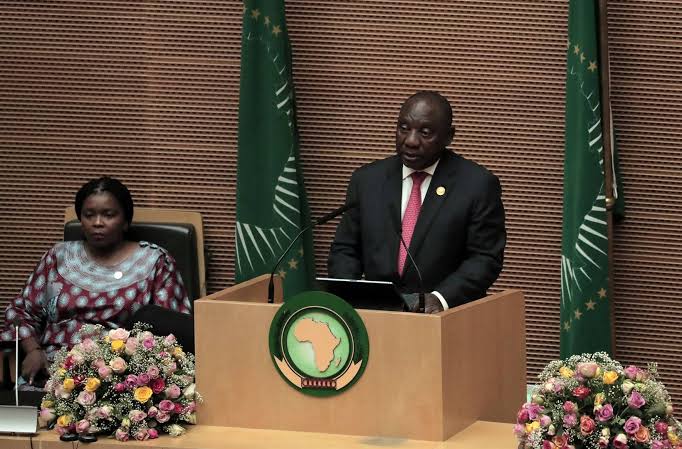South African President Cyril Ramaphosa on Monday commemorated the 30th anniversary of Nelson Mandela’s release from prison, calling for unity to confront challenges.
SEE ALSO: Former Daewoo Boss, Kim Woo Choong, Dies at 82
Ramaphosa was speaking one day before South Africans come together to celebrate the 30th anniversary of Mandela’s release from prison.
Inequality, unemployment, poverty and violence remain the major challengers for South Africa 30 years after Mandela was released from prison, the president said.
Mandela was released from prison on Feb. 11, 1990, a defining moment in South Africa’s onward march towards democracy which was established four years later.
“We are at peace, and over the past 25 years our people have experienced improvements in almost all areas of life,” Ramaphosa said in his weekly address from the Desk of the President.
Now the country confronts challenges of a completely different nature, he said.
Inequality in South Africa, especially as defined by race and gender, remains among the highest in the world, according to Ramaphosa.
Unemployment is deepening, poverty is widespread, and violence, including the violence that men perpetrate against women, continue to ravage the communities, said Ramaphosa.
In confronting these challenges, it is vital that South Africans remain united, he added.
“As we mark this joyous anniversary, we share a common goal of an equal, just and prosperous South Africa, where all may experience an improving quality of life, and all may be able to realise their potential, Ramaphosa said.
He said the country seeks a growing, inclusive economy that creates jobs, a capable developmental state that provides affordable services efficiently, and education, health, homes and safety for all.
“I am certain that we can achieve all this for our country, but it will require much closer collaboration among all parts of society — government, unions, business, community structures, traditional leaders, students, faith-based organisations, academics and others,” said Ramaphosa.
This requires that every organisation and every individual brings whatever resources and capabilities they have to the table, Ramaphosa said.
It also requires trust and respect, and a willingness to accommodate views and positions of others, he added.



Leave a Reply